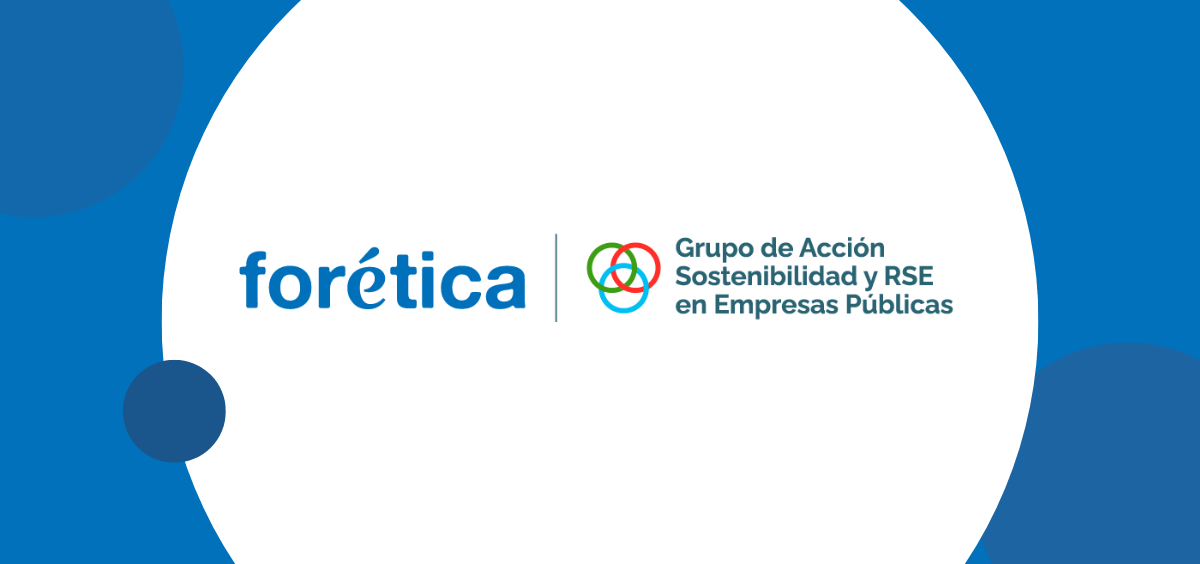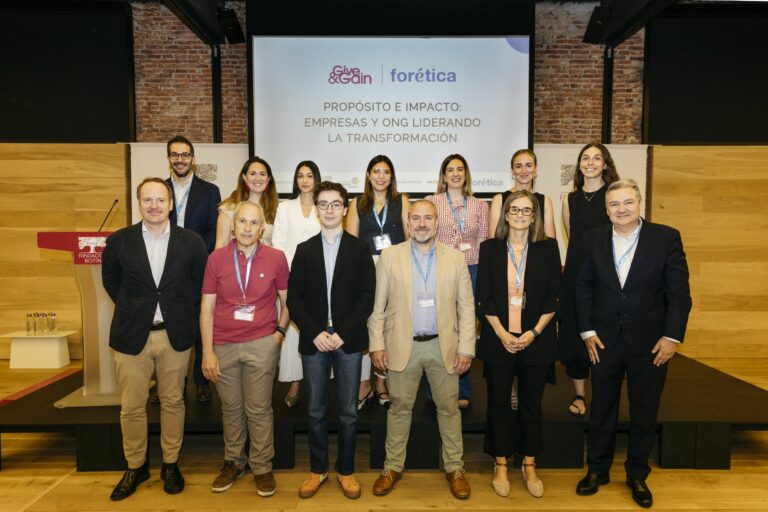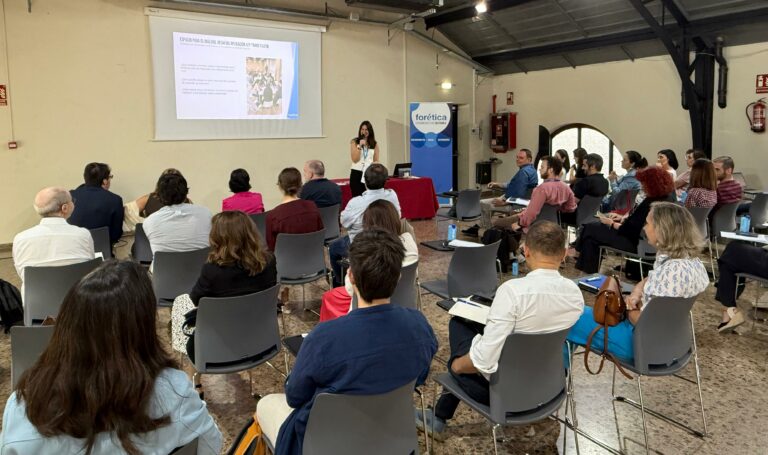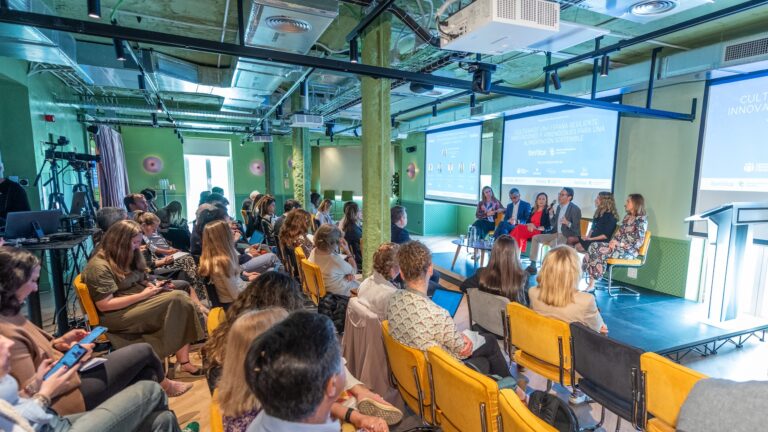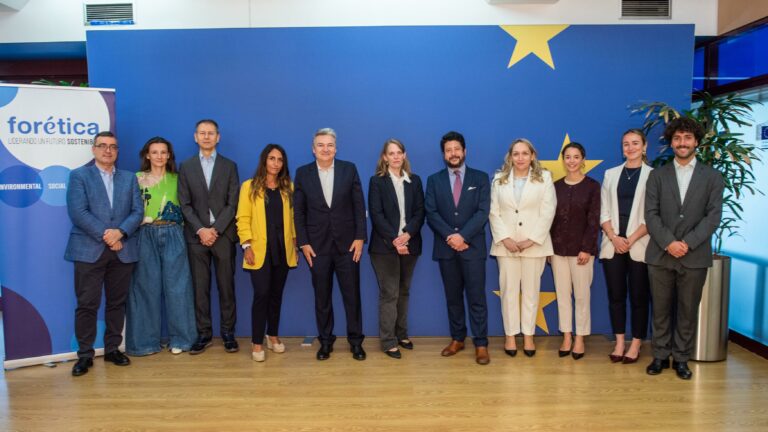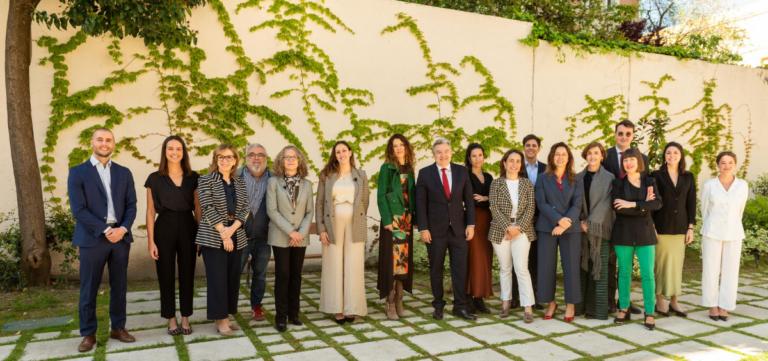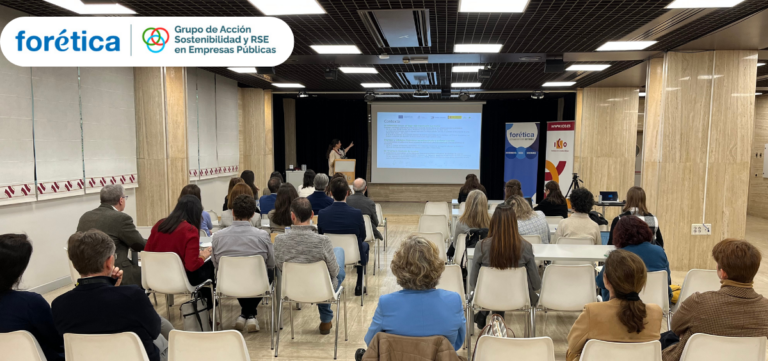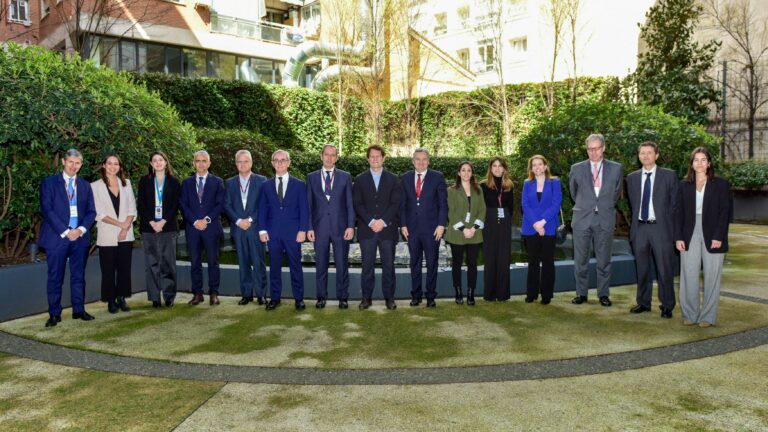- El Grupo de Acción de Sostenibilidad y RSE en las Empresas Públicas -liderado por Forética y compuesto por más de 30 entidades públicas, encabezadas por el Instituto de Crédito Oficial- arranca su sexta edición abordando los retos y oportunidades de medir y reducir las emisiones en toda su cadena de valor (‘Alcance 3’)
- Este año, el Grupo de Acción pondrá foco además en el impacto de la nueva Directiva de Informes de Sostenibilidad de la Unión Europea y de los futuros estándares de reporte
El Grupo de Acción de Sostenibilidad y RSE en las Empresas Públicas -liderado por Forética y compuesto por más de 30 entidades públicas, encabezadas por el Instituto de Crédito Oficial- arranca su sexta edición abordando los retos y oportunidades de medir y reducir las emisiones en toda su cadena de valor (el denominado ‘Alcance 3’) como acción clave para alcanzar la neutralidad climática en las empresas públicas.
Para contribuir a este objetivo, Forética y las empresas públicas que forman parte del Grupo de Acción han configurado una hoja de ruta que permitirá a las empresas establecer una estrategia de cambio climático ambiciosa y ser el punto de partida para alcanzar las cero emisiones netas en aquellas entidades comprometidas con este objetivo. La hoja de ruta también se posiciona como una llamada a la acción para aquellas organizaciones menos maduras en este ámbito.
La hoja de ruta ha sido estructurada en seis acciones clave: el establecimiento de un compromiso con el objetivo ‘net zero’, la consideración del cambio climático como riesgo empresarial, el establecimiento de objetivos ambiciosos alineados con la ciencia, la gestión de emisiones de ‘Alcance 3’, las medidas de compensación y neutralización y la exigencia del reporte climático.
Ana Gómez, Manager del Grupo de Acción de Sostenibilidad y RSE en las Empresas Públicas destaca: “Nuestro objetivo como Grupo de Acción es contribuir a la consecución de los Objetivos de Desarrollo Sostenible (ODS), impulsando para ello la agenda de sostenibilidad en las empresas públicas españolas. Este año pondremos foco en seguir avanzando hacia la neutralidad climática en las empresas públicas y abordaremos los retos e implicaciones de la nueva Directiva de Informes de Sostenibilidad de la Unión Europea y de los futuros estándares de reporte. Desde Forética vemos cómo la integración de estos elementos supone una importante fuente de oportunidades a la hora de dar respuesta a las nuevas exigencias regulatorias comunitarias y de reducir posibles riesgos relacionados con la sostenibilidad, que tengan como consecuencia un impacto económico y reputacional en las organizaciones”.
Según el informe ‘Clima y bienestar: En el foco de la agenda ESG de las empresas públicas españolas’ publicado por Forética en el marco del Grupo de Acción, para el 67% de las empresas del Grupo de Acción, la colaboración y el trabajo junto con proveedores con el objetivo de descarbonizar la cadena de suministro les parece una de las cuestiones más relevantes a trabajar para lograr las cero emisiones netas en sus organizaciones.
El encuentro organizado con las empresas miembro del Grupo de Acción ha contado con la participación, por parte de KPMG, de Germán García, director de Net Zero Advisory, y Carolina Trimiño, experta en Cambio Climático del área de Sostenibilidad y Buen Gobierno, que han compartido de forma práctica y didáctica cuáles son las principales consideraciones y herramientas para medir y reducir las emisiones de ‘Alcance 3’, así como las acciones más idóneas para la compensación y neutralización de emisiones residuales.
El Grupo de Acción de Sostenibilidad y RSE en las Empresas Públicas, liderado por Forética y encabezado por el Instituto de Crédito Oficial (ICO), está compuesto por más de 30 entidades públicas miembro: Adif, Aena, Aquavall, Barcelona de Serveis Municipals (BSM), CESCE, Corporación Empresarial Pública de Aragón, Corporación Pública Empresarial de Navarra (CPEN), Emasesa, ENAIRE, Enresa, ENUSA, Extremadura Avante, Grupo Tragsa, ICEX, INECO, Metro de Madrid, Navantia, Paradores, Renfe, RTVE, SENASA y Valenciaport. En el Grupo participan en calidad de miembros observadores las siguientes entidades: COFIDES, Giahsa, la Guardia Civil, ISDEFE, la Dirección General de la Policía, la Red Nacional Sanitaria de RSC y Sociedad Mercantil Estatal de Gestión Inmobiliaria de Patrimonio (SEGIPSA).
El Grupo ha abordado en ediciones previas asuntos claves en materia de sostenibilidad como son el compromiso de las empresas públicas con los nuevos marcos regulatorios de sostenibilidad de la Unión Europea, la contribución a la Agenda 2030 (con foco en las iniciativas vinculadas a transparencia, economía circular y voluntariado corporativo), la gestión de riesgos no financieros o la contratación pública responsable, entre otros.

